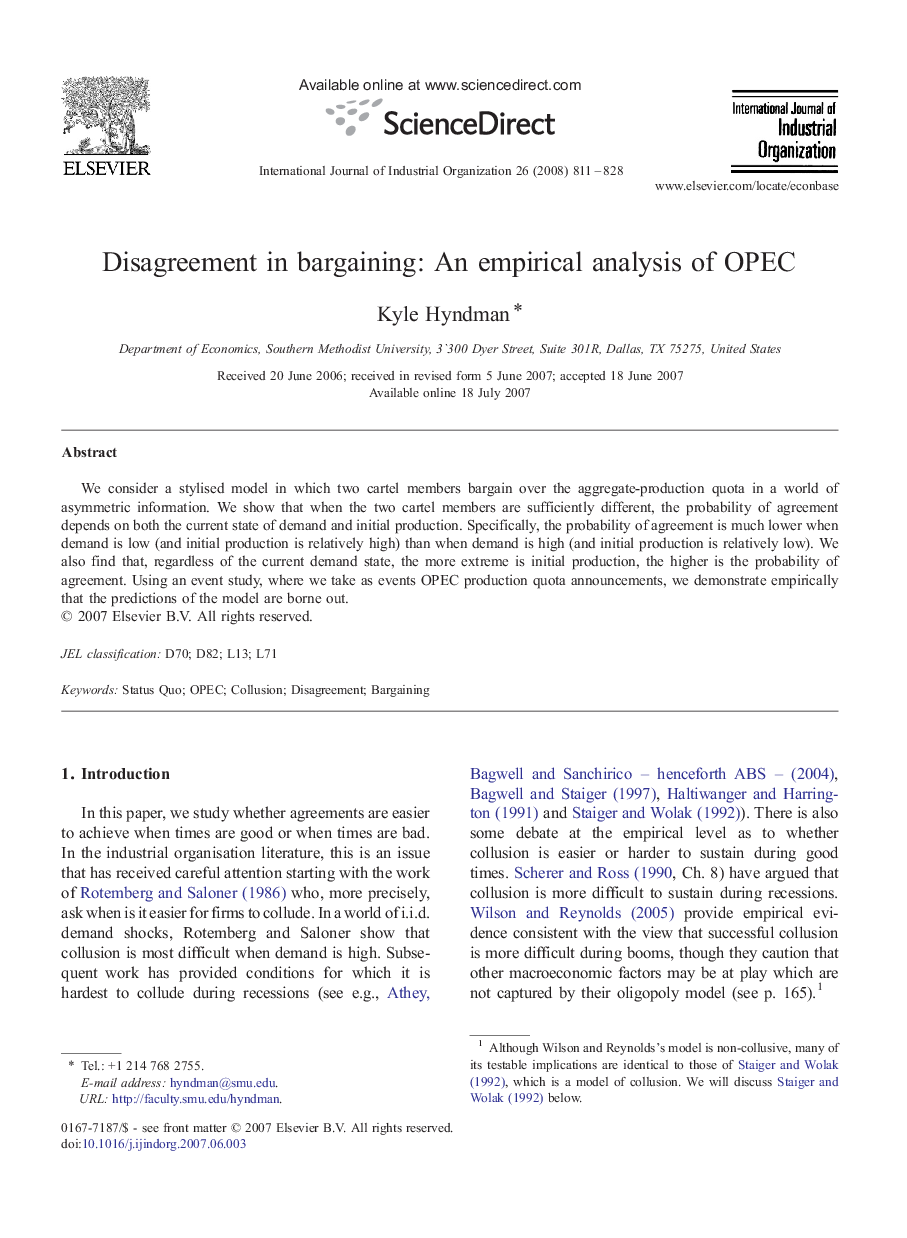| Article ID | Journal | Published Year | Pages | File Type |
|---|---|---|---|---|
| 5078760 | International Journal of Industrial Organization | 2008 | 18 Pages |
Abstract
We consider a stylised model in which two cartel members bargain over the aggregate-production quota in a world of asymmetric information. We show that when the two cartel members are sufficiently different, the probability of agreement depends on both the current state of demand and initial production. Specifically, the probability of agreement is much lower when demand is low (and initial production is relatively high) than when demand is high (and initial production is relatively low). We also find that, regardless of the current demand state, the more extreme is initial production, the higher is the probability of agreement. Using an event study, where we take as events OPEC production quota announcements, we demonstrate empirically that the predictions of the model are borne out.
Related Topics
Social Sciences and Humanities
Economics, Econometrics and Finance
Economics and Econometrics
Authors
Kyle Hyndman,
